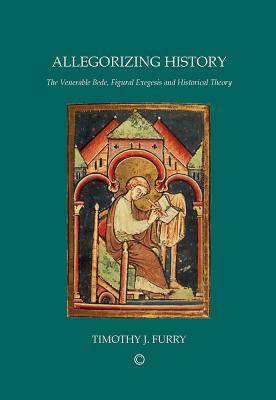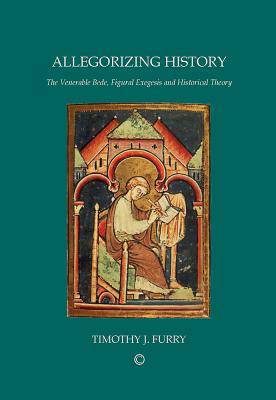
- Afhalen na 1 uur in een winkel met voorraad
- Gratis thuislevering in België vanaf € 30
- Ruim aanbod met 7 miljoen producten
- Afhalen na 1 uur in een winkel met voorraad
- Gratis thuislevering in België vanaf € 30
- Ruim aanbod met 7 miljoen producten
Zoeken
Allegorizing History
The Venerable Bede, Figural Exegesis, and Historical Theory
Timothy J Furry
Paperback | Engels
€ 56,45
+ 112 punten
Uitvoering
Omschrijving
What is history and how does it impact upon biblical interpretation and theology? 'Allegorizing History' seeks to answer this question by arguing that conceptions of the past and the purposes of history impact upon biblical interpretation and vice versa.Invoking Constantin Fasolt's notion of history as 'a knowledge of the past, as well as the technique by which such knowledge is produced', and re-fashioning Erich Auerbach's historical enterprise in Figura (1938), Furry contends that the understanding and practice of historical writing is inevitably affected by philosophy and theology, thereby rendering all history as figural or allegorical. Famous for his Ecclesiastical History of the Anglo-Saxon People and biblical commentaries, the Venerable Bede is studied in dialogue with Augustine, contemporary theology, and historical theory to make this interdisciplinary argument.
Specificaties
Betrokkenen
- Auteur(s):
- Uitgeverij:
Inhoud
- Aantal bladzijden:
- 172
- Taal:
- Engels
Eigenschappen
- Productcode (EAN):
- 9780227174241
- Verschijningsdatum:
- 29/05/2014
- Uitvoering:
- Paperback
- Formaat:
- Trade paperback (VS)
- Afmetingen:
- 152 mm x 231 mm
- Gewicht:
- 249 g

Alleen bij Standaard Boekhandel
+ 112 punten op je klantenkaart van Standaard Boekhandel
Beoordelingen
We publiceren alleen reviews die voldoen aan de voorwaarden voor reviews. Bekijk onze voorwaarden voor reviews.











